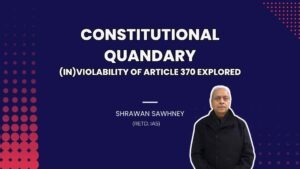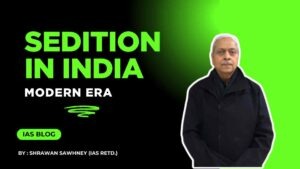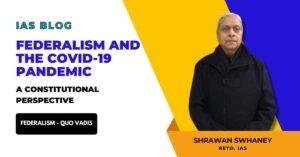Gen - Z and Clout Culture
Gen - Z and Clout Culture
Generation Z, also known as Gen Z-ers and Zoomers, is born between 1997 and 2012. It has succeeded the millennials and preceded the Generation Alpha. Gen Z, comprising roughly 20% of the world’s population, is the digitally native generation as it has grown up in a world where social media – Instagram, TikTok, YouTube, Snapchat, LinkedIn, Facebook, Reddit, Twitter (now renamed X) – is an integral part of daily life.
This generation has been shaped by the rapid evolution of technology and the proliferation of social media platforms. Resultantly, Gen Z’s relationship with social media is complex, multifaceted, and distinctly different from previous generations. About 94% of Gen Z is highly active on social media, spending hours scrolling through feeds, creating and sharing online viral content, and interacting with friends and influencers.
Gen Z’s impeccable digital skills have made them a generation with unprecedented influence and fame has become their coveted goal. Social media platforms serve as gateways to recognition, influence, and what we now call “clout.” Clout culture among Gen Z refers to the social influence one has, particularly in online spaces. It is about gaining recognition through accumulating followers, creating viral content, or being seen as an authority in a specific field.
This culture of having a significant number of followers, or creating trending content, translates into having “clout.” In a recent study, it has emerged that 86% of the people aged 13 to 38 aspire to become social media influencers. There are different types of influencers and content creators who can be placed in categories according to their reach.
Nano-influencers have 1k-10k followers who have garnered a small but loyal audience in one niche or another.
Microinfluencers have about 10k-50k followers attracting audience because of their content. Mid-tier influencers have 50k-100k followers.
Macro-influencers have between 100k-1M followers. These influencers are smaller celebrities, who create content full time.
Mega-influencers are the largest types of influencers and have over 1 million followers, such as, Charli D’Amelio, Amber Rose, Kyle Jenner, Selena Gomez, Deepika Padukone, Zach King, etc.
However, it is important to acknowledge the potential drawbacks of social media and the dark side of the clout culture. The pursuit of clout isn’t always virtuous. Social media influencers exploit societal vulnerabilities or sensationalize sensitive topics for attention. Being an influencer often undermines other career paths because influencers vie with each other for “fifteen seconds of fame.” Concisely, Gen Z’s fascination with clout reveals both the allure of influence and the pitfalls of chasing fame. Remember, clout isn’t just about numbers—it’s about impact. Its impact on mental health is multifaceted. Gaining recognition and influence can boost self-esteem but pursuit of clout often leads to anxiety. Fear of losing followers or relevance can be overwhelming. Social media fosters constant comparison. Seeing others’ success can also trigger feelings of inadequacy. Clout seekers rely on likes and comments for validation and when these metrics fluctuate, it affects their self-esteem. We know that clout attracts both admirers and trolls. Negative comments do harm their mental well-being.
A global trend is emerging to control social media use.
Vivek Ramaswamy, set to lead the Department of Government Efficiency under the Trump Administration, supports proposals limiting social media access for teens under 16 to improve mental health and combat the digital fentanyl epidemic. In the US, the Social Media Child Protection Bill, 2023 seeks to block children under 16 from using social media and mandates age verification, though it hasn’t been passed into law yet.
Recently, the Australian Parliament passed the Online Safety Amendment (Social Media Minimum Age) Act, 2024, banning children under 16 from using social media. Other countries have proposed similar bans with varying age limits and conditions.
For instance, France proposes a ban for children under 15, with parental consent allowing an exception.
The Cyberspace Administration of China (CAC) introduced comprehensive restrictions in August 2023. Children under 8 years old are allowed to use smart devices for only 40 minutes a day. Those aged 8-15 can use them for up to an hour a day. Only age-appropriate content is allowed. Minors are prohibited from accessing the internet on mobile devices from 10 p.m. to 6 a.m.
In Germany, the Protection of Young Persons Act and the Interstate Treaty on the Protection of Minors in the Media regulate media consumption by minors. Platforms must implement age verification and parental consent for minors. Platforms are required to provide age-appropriate content.
In India, there will not be age-gating for children to join social media platforms but those under 18 years of age will require verifiable parental consent before joining the platform. Draft rules of the Digital Personal Data Protection (DPDP) Act, 2023, released by the IT Ministry last week have termed entities, collecting and using personal data, as data fiduciaries. These include social media, e-commerce and gaming platforms. However, there is no provision to check children from joining social media by giving false date of birth. Draft rules are open for public comments now.
To mitigate the impact of clout culture, users should prioritize well-being over popularity, focus on genuine content, set time limits, and explore hobbies beyond social media. If affected, professional help should be sought. Educating younger generations on healthy social media use, integrating digital literacy into curriculums, and promoting influencers who prioritize authenticity are key. Open dialogues on social media’s impact should be encouraged. These measures foster a safer online environment, ensuring social media benefits users. Healthy social media use begins with informed choices!
By: Shrawan Sawhney (IAS Retd.)
The Views expressed by the author are personal.
Notes on Gen Z and Clout Culture
1. Introduction to Generation Z
- Born between 1997 and 2012, Gen Z follows Millennials and precedes Generation Alpha.
- Comprises roughly 20% of the world’s population.
- The first fully digital-native generation.
- Heavy reliance on social media platforms such as Instagram, TikTok, YouTube, and Twitter (X).
2. Social Media and Clout Culture
- Definition of Clout Culture: The pursuit of influence and recognition through social media.
- Gen Z is highly active on social media, with 94% regularly engaging with content.
- Influencer Economy:
- 86% of people aged 13-38 aspire to be social media influencers.
- Different categories of influencers based on follower count:
- Nano-influencers (1k-10k followers)
- Micro-influencers (10k-50k followers)
- Mid-tier influencers (50k-100k followers)
- Macro-influencers (100k-1M followers)
- Mega-influencers (>1M followers)
3. Positive and Negative Aspects of Clout Culture
A. Positive Impacts
- Democratization of fame—anyone can gain recognition.
- Economic opportunities—monetization via brand deals, sponsorships, and content creation.
- Platform for social activism and awareness campaigns.
B. Negative Impacts
- Mental Health Issues: Anxiety, self-esteem fluctuations, fear of losing followers.
- Troll Culture and Cyberbullying: Negative comments and online harassment.
- Career Undermining: The aspiration to become influencers often diverts attention from traditional career paths.
- Unethical Content Creation: Sensationalizing sensitive topics to gain views and engagement.
4. Global Regulation of Social Media Use
- USA: Social Media Child Protection Bill, 2023 (proposed law) restricting access for those under 16.
- Australia: Online Safety Amendment Act, 2024—banning social media access for children under 16.
- France: Proposed ban for children under 15; parental consent required for exceptions.
- China: Strict daily usage limits based on age, including a nighttime ban from 10 PM to 6 AM.
- Germany: Age verification and parental consent mandated for minors.
- India: Digital Personal Data Protection (DPDP) Act, 2023 proposes parental consent but lacks strict age verification measures.
5. Solutions and Way Forward
- Digital Literacy & Awareness: Integrate healthy social media habits into education.
- Self-regulation: Prioritize well-being over popularity; seek professional help when needed.
- Parental Guidance: Encouraging responsible use and time limits for social media.
- Encouraging Authenticity: Promoting influencers who prioritize meaningful engagement over mere numbers.
Mains-Based Questions on Gen Z and Clout Culture
Q1. Discuss the impact of social media and clout culture on Generation Z. How can the negative aspects be mitigated? (250 words)
Introduction
- Briefly define Generation Z and its deep engagement with social media.
- Explain the concept of clout culture.
Body
Positive Impacts:
- Digital entrepreneurship and career opportunities.
- Platform for self-expression and social activism.
- Global connectivity and knowledge-sharing.
Negative Impacts:
- Mental health issues (anxiety, self-esteem dependence on validation).
- Cyberbullying and trolling.
- Ethical concerns—sensationalism for engagement.
Mitigation Measures:
- Strengthening digital literacy and online safety regulations.
- Parental supervision and school-based interventions.
- Encouraging a shift toward meaningful engagement rather than numbers.
Conclusion
- Balanced perspective on using social media responsibly.
- Role of governments, educational institutions, and individuals in promoting healthy digital habits.
Q2. Examine the various global measures taken to regulate social media access for minors. What lessons can India draw from these initiatives? (250 words)
Introduction
- Mention rising concerns over social media addiction and its impact on mental health.
- Introduce global initiatives for social media regulation.
Body
International Measures:
- USA: Social Media Child Protection Bill, 2023.
- Australia: Online Safety Amendment Act, 2024.
- China: Age-specific time restrictions.
- France & Germany: Age verification and parental consent regulations.
Lessons for India:
- Implement strict age verification mechanisms.
- Balance digital rights with mental health considerations.
- Strengthen enforcement of parental consent policies under DPDP Act, 2023.
Conclusion
- India should adopt a holistic approach that blends regulatory oversight with digital education.
Prelims Questions based on UCC
-
Uncapping Reservations –A Conundrum
Uncapping Reservations - A Conundrum Table of Contents Blog - Uncapping... -
Constitutional Quandary: Inviolability of Article 370 Explored
Upon adoption of the Constitution of India, the preamble proclaimed,... -
Decoding Article 370 – A Historical Retrospect
The Apex Court is currently hearing petitions disputing the amendment... -
Sedition In India-Modern Era
English inhabitants in India requested the then Indian rulers to... -
Sedition In India – A Historical Retrospect
Sedition is perhaps the very vaguest of all offences known... -
Contours of Free Speech
Recent a spate of cases against stand-up comics Munawar Faruqui,... -
Generation-Z And Clout Culture
Generation Z, also known as Gen Z-ers and Zoomers, is... -
Community Resources :An Equitable Landscape
Community Resources: An Equitable Landscape Table of Contents Blog - Community... -
Federalism and the Covid-19 Pandemic: A Constitutional Perspective
Recently, an article in a leading English national daily made... -
Uniform Civil Code – A Historical Perspective
Article 35 of the draft Constitution of India provided that... -
Secular Credentials Of UCC – Shrawan Sawhney
Recently, the 22nd Law Commission of India has set the...












